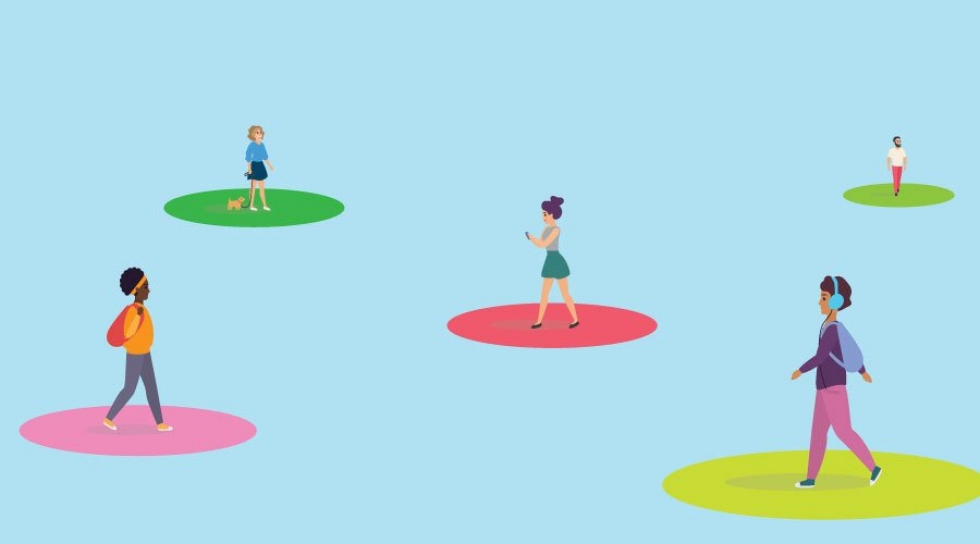“It feels like we’re in a game of battle ship… and we’re the ships”
Recently, Voices for Utah Children hosted a virtual panel discussion on children’s mental health during COVID-19. Our panel of experts came from the University of Utah Neuropsychiatric Institute , Canyons School District, the Multicultural Counseling Center and the Children’s Center. We had a great discussion and encourage you to check out the full panel discussion. Panelists discussed the impact that COVID-19 is having on children and youth of all ages: from the disruptions in routine and isolation, to the unexpected positives and opportunities in this moment. Here are a few of the highlights and policy recommendations that came out of the discussion:
The need to help kids get insured and access care:
All panelists discussed the need to help all children get covered. When children do not have health insurance, it is even harder for kids to access mental health care. During this crisis, children have been less likely to connect with other forms of support and prevention, such as support from teachers or peers. It is critical that we get all kids insured so they can connect with a health care provider and get mental health support.
Greater family stressors and social conditions affecting mental health:
Panelists discussed how “mental health doesn’t occur in a vacuum” and we need to proactively address the broader circumstances and conditions of a child’s life. Many families are experiencing greater financial challenges, housing instability and food insecurity, which affects children’s overall health and well-being. Even if families are not experiencing financial hardship, they are overwhelmed trying to navigate virtual schooling and disruptions. These challenges can be even harder for families who do not speak English or are concerned about getting help for fear that it may affect their citizenship status. Panelists discussed that many households are experiencing increases in domestic violence or child abuse. Families and caregivers are not getting much- if any- respite. Parent and caregiver stress weighs on the whole family and can lead to greater mental health challenges and trauma for children. We need to address the social determinants of health and care for the whole child through a multidisciplinary approach.
Telehealth is working- keep the progress going!
Despite these many challenges, there are some bright spots. One area is telehealth, which has allowed many children and youth to continue care and helped remove accesss barriers that many youth and families faced. Panelists urged state officials and insurers to keep in place and advance telehealth measures put in place during the pandemic, and not return to the more stringent requirements of the past. Panelists all discussed how important it is to continue with the opportunities and advancements of telehealth.
Importance of school counselors, social workers and school nurses:
Panelists discussed how COVID-19 has exposed many gaps in our schools, but also revealed opportunities to make improvements in our education system. Of note, panelists emphasized the need for more school counselors, social workers and school nurses and increasing relationships with community mental health agencies. As one panelist noted, if kids are “too mad or too sad, they can’t add.” Nevertheless, COVID-19 may also lead to new or innovative changes to our education system. Panelists noted that some students report getting more sleep, having more quality time with families, or reduced depression. Despite the many challenges, we are also identifying new strategies and approaches to improve children’s mental health.
"Connect and stay connected to support"
Panelists all spoke of the need to work together to swiftly and decisively get COVID-19 under control. Panelists discussed how youth are expressing frustration that “adults are not really doing their part” to control the virus, such as wearing a mask or taking the pandemic seriously. Many youth feel frustrated that state officials have prioritized so many interests ahead of their own needs, and this compounds feelings of hopelessness and crisis. One panelist recalled a student feeling like everyday they are in a “big game of battleship and we're the ship… hit or miss…”
We can do more to help our kids feel less like a target right now. Through our policies, actions and investments we can help kids and families feel safer and more hopeful. As our panel ended, one panelist reminded us that we are all in this together, and we can help kids and families "connect and stay connected to support" so we can come out of this crisis even stronger.
Thank you to our incredible panelists, Kristi Kleinschmit, BJ Weller, Gina Toledo and Jennifer Mitchell for joining this panel.
If you need help or resources, check out:






